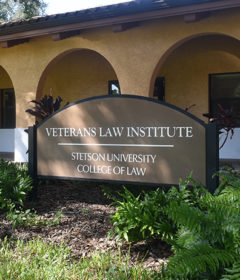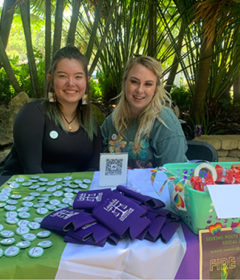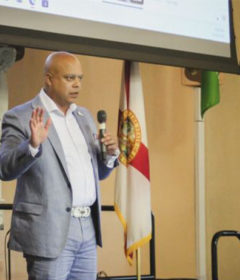4 Women Who Broke Barriers at Stetson Law & Beyond
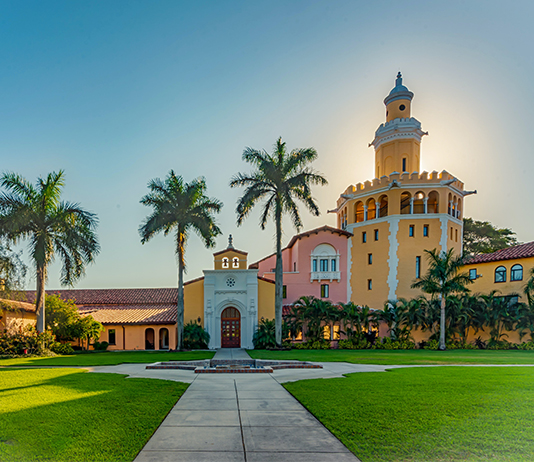
More than half the students at Stetson University College of Law are women and this has been true for more than a decade – but some pioneering lawyers from Stetson remember a far different time.
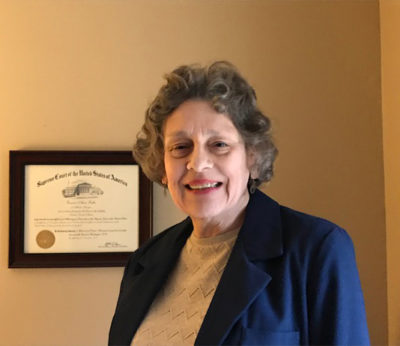
Eunice Luke, for example, graduated from Stetson Law in 1966. She was talking to some younger female lawyers in Atlanta.
“They couldn’t get their head around the fact that I was the only woman in my class,” she said.
But when Luke visited the Stetson campus a few years ago for her 50 reunion, she was the one trying to get her head wrapped around what she saw.
“I looked around the campus and there are all these women all over the place,” Luke said. “And I’m thinking, ‘Oh my gosh this is so different.’”
Luke and other women in the Stetson Law community were trailblazers, even if they don’t often use such words about themselves. They can remember the people, sometimes their own classmates, who didn’t believe they belonged in law school and the skeptical looks they got in their first job interviews, in spite of their newly minted Stetson Law diplomas.
Making change on campus & the legal profession
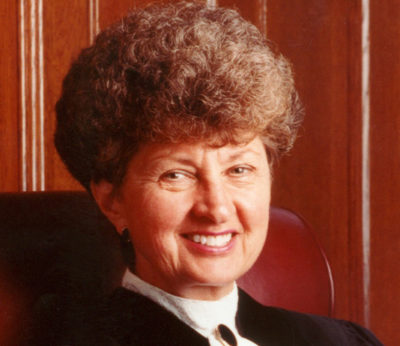
Against unlikely odds, these women made an impact — not just on Stetson Law, but on the legal profession as a whole.
There’s Elizabeth Kovachevich, who graduated from Stetson Law in 1961 and went on to become a U.S. District Court Judge for the Middle District of Florida.
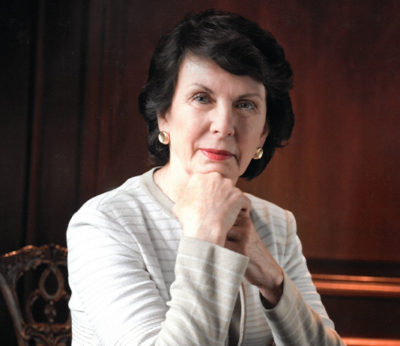
There’s Carol W. Hunstein, who graduated in 1976 and went on to become chief justice of the Georgia Supreme Court.
There’s Luke, who graduated from Stetson, went on to a career in the federal government and then established a scholarship to help other Stetson students.
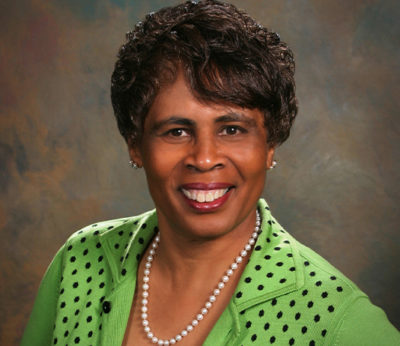
And there’s Peggy A. Quince, the first African-American woman to become chief justice of the Florida Supreme Court. Although she received her law degree from the Catholic University of America, she has been closely associated with the Stetson legal community as a friend, supporter, board of overseers member, and inductee into the Stetson Law Hall of Fame.
A history of elevating women
Stetson, which is Florida’s first law school, also holds the distinction of having the state’s first female law school graduate, in 1908. That didn’t make it a common occurrence. While female lawyers did exist in the 1960s, they were, as Luke put it, “as rare as hen’s teeth.”
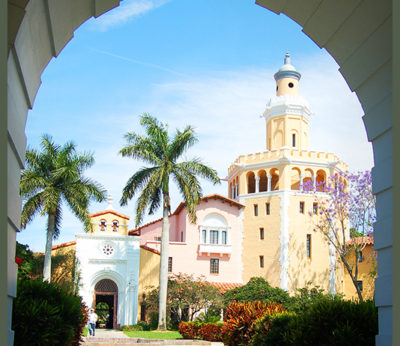
When Hunstein enrolled in the 1970s, she was one of six female law students, the largest number of any class in Stetson Law history up to that point.
“We were sort of an oddity,” she said. “The men frankly thought we were there to marry a lawyer.”
The men also could be heard grading the women by appearance, on a scale of 1 to 10.
“But all the women graduated,” she said of the six in her class.
Kovachevich recalls what she terms “the Stetson shuffle.” When a female student presented in class, “the fellows in the class would shuffle their feet and make that noise, like you’re on your way out of here.”
“It wasn’t a very pleasant experience and I for the first time in my life experienced discrimination and it was gender discrimination,” she said.
In spite of the slights, these women persevered, each believing they had to make the most of their opportunity. Kovachevich’s grandfather, an immigrant from Croatia, had urged her to study the law because of his deep love for the freedoms guaranteed by the U.S. Constitution. She wanted to honor his wish.
Hunstein first thought of going into law after a college aptitude test suggested she would excel in a legal or military career. Once in law school, she was determined to succeed.
“It was so important to me to have this opportunity, something that I never dreamed would be available to me,” said Hunstein, who was the first in her family to graduate from college.
Facing early-career challenges
For these women, earning a law degree was a huge accomplishment, just as it is today. They knew that after passing the bar exam, they could reach out to any law office and seek a job – but that didn’t mean anyone would listen.
Luke said some law firms simply ignored her applications. One lawyer asked how many children she intended to have. It took her by surprise. All she managed to blurt out was, “I’m not even engaged.”
When she realized the federal government paid men and women the same, she applied. She was hired by the U.S. Department of Agriculture and worked there for 34 years.
Kovachevich became a sole practitioner who “specialized in anything that walked through the door.”
After she was appointed by Florida Gov. Claude Kirk to serve on the Board of Regents, friends told her she should run for office. She set her sights on a circuit judgeship.
“There was not any support from the local Bar, even though I was secretary of the (St. Petersburg) Bar Association,” she said. “But here again when a woman had the audacity to offer herself for public service, wow that wasn’t acceptable.”
But Kovachevich was successful, winning election as a circuit judge in 1982. President Ronald Reagan appointed her as a U.S. District Judge in 1982. She is now a senior judge in Florida’s Middle District. After more than four decades on the bench, she feels she has been exactly in the right place.
“I just had the feeling that this was what I was meant to do…. I have a firm religious belief in God and I felt that this is what God wanted me to do. And I’ve tried to do it to the best of my ability,” Kovachevich said.
Hunstein, who had managed to make it through law school as a single parent, began her job search in Georgia.
“I couldn’t get a job searching titles,” she said. “That’s true.”
But a program in Fulton County allowed attorneys to come to the Atlanta jail on Mondays and be assigned misdemeanor cases, which needed to be resolved by the end of the week.
“After which you would be paid $50,” she recalled. “And that’s slowly how I built my practice.”
She handled litigation, criminal defense, domestic relations and more.
“I loved being in the courtroom,” she said.
She said she was generally treated well by fellow attorneys and by juries, but sometimes found judges could be surprisingly condescending. She remembers one in particular.
“He was absolutely horrible to me,” she said. “He called me ‘little lady’ and any time he could rule against me he would.”
But this judge gave her inspiration once she realized, “I could be a better judge than he was. That was the motivation for me running for a Superior Court judgeship in DeKalb County.”
With help from friends who knew how to run a good campaign, she was elected in 1984. She eventually applied to be named to the Georgia Supreme Court. Then-Gov. Zell Miller appointed someone else, also a woman and conventional wisdom was that two women would not be appointed to the high court in a row.
But a friend encouraged her to apply again anyway and Miller did appoint her. When she got the call, she said, “There was just this flood of emotion. I was just so grateful to have that opportunity. I still call him my governor.”
A common thread
All these women showed the acumen and grit to succeed. And all say Stetson has been an important part of their story.
“Without an excellent education, with all the challenges academically and professionally, where would I be?” Hunstein said. “They were there for me and they gave me the foundation to become a good lawyer, a good judge and really honor the law.”
Luke, the retired USDA attorney, established a scholarship because she received one in her third year at Stetson Law that was crucial to helping her finish school. She wanted to make sure others would have the same opportunity. The scholarship is open to women and men.
Kovachevich has given back much to Stetson also, through an extensive judicial internship program in the federal court.
Inspiring future generations
Quince says that while she did not attend Stetson Law, “the law school was and is important to me because it was a part of the legal community that I was also a part of.”
“I don’t necessarily consider myself a pioneer,” she said, but she strongly believes in the value of women and minorities having the opportunity to succeed in areas once closed to them.
“I take pride in the fact that I was the first African American female to be appointed to both a district court of appeal and the Florida Supreme Court,” she said. “It was also an honor and a privilege to be the first African American female to head a Florida branch of government when I was the chief justice of the Florida Supreme Court.”
Yes, she said, these firsts were important to her. But what she really hopes is for them to be an inspiration to others.
“I hope that young people will look on these accomplishments as a chance to say ‘I can do this too and more,’” she said.
An earlier version of this story ran in the Spring 2019 edition of Stetson Lawyer magazine.
-Curtis Krueger

